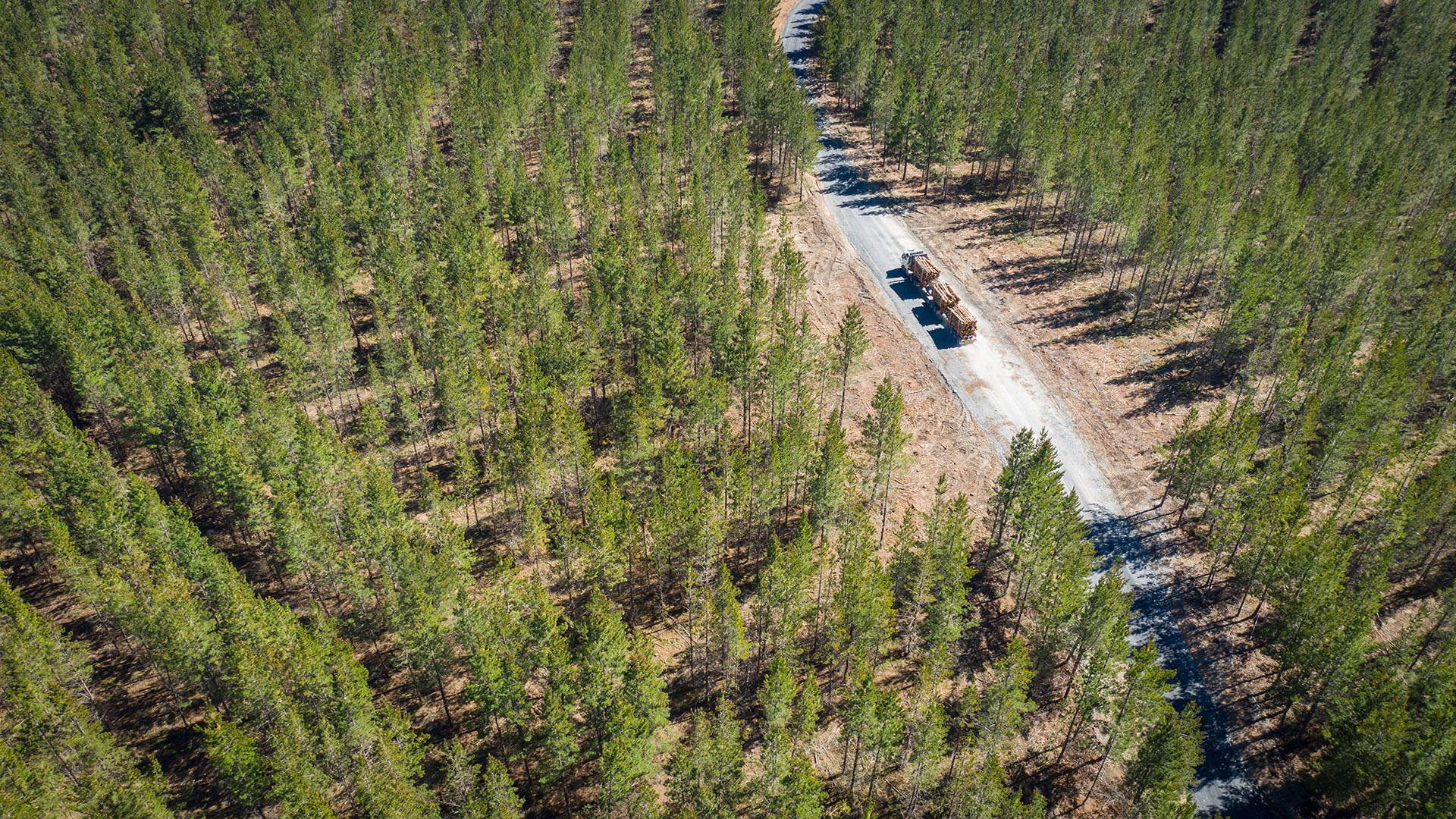Trees are natural carbon sinks that capture carbon from the air as they grow. They use carbon to build their biomass and store it in their trunks, branches, leaves and roots. Wood products also store carbon and help reduce greenhouse gas emissions. When wood is harvested from sustainably managed forests, it retains the carbon that was sequestered by the trees.
By using wood products for long-lasting purposes, such as building materials, or furniture, we can keep the carbon out of the atmosphere for longer. By managing forests sustainably and using wood products for long-lasting purposes, we can enhance the carbon benefits of forests and wood products over time. This can help mitigate climate change and support a low-carbon economy.

A recent detailed report was released by the Central West Forestry Hub (CWFH), showcasing how the timber industry in the Central West region of NSW results in more carbon being stored than emitted.
The industry achieved a net negative carbon footprint in the 21/22 fiscal year, with a total of 1,100,787 tonnes of carbon captured and stored, exceeding its emissions.
“The Hub’s analysis of the report’s findings shows that the carbon emissions off-set through the industry’s operations are equivalent to the emissions generated annually by 169,000 cars, or 63,000 households. This is equivalent to the carbon emitted by every household in the Oberon LGA 25 times over.”
“All emissions including heavy machinery and trucks taking logs into the mills and finished products out of the mills have been included in the calculations.”
At Australian Panels, we are extremely proud to be a part of this positive impact. The quality of our products and our impact on the environment is at the forefront of our business model.

Our wide range of MDF and Particleboard products - STRUCTAflor, STRUCTApanel, CUSTOMwood, CUSTOMpine, COLOURpyne and ULTRApine - are all made with timber at their core, which means you can enjoy the natural beauty and durability of engineered wood while supporting a greener future.
Owned by Borg, Australian Panels is one business in a chain of many under Borg whose business model is highly aligned with sustainability and has adapted vertical integration into every aspect of the business.
Through recycling initiatives created by the other Borg businesses such as reDirect Recycling and Direct Pallets, Borg is aiming for circular resource recovery solutions that can be integrated into other parts of the business. By restoring the end-of-life process of products, Borg is offering affordable products and services with vertical integration that also benefits the environment.

These sustainable practices extend beyond just wood recycling. The collection of dust, bark and waste biomass produces fuel to power manufacturing plants, whilst MDF board offcuts are repurposed into pallets and bearers to generate packaging from waste materials. There are more than 50,000 solar panels installed nationwide thereby avoiding 10,500 tonnes of Co2 emissions per year, and by treating wastewater and reusing it in manufacturing processes, display a comprehensive range of practices with the environment in mind, working towards a circular economy.
We are proud of our achievements in this space and our “closed loop” manufacturing process.

